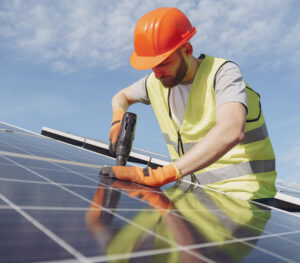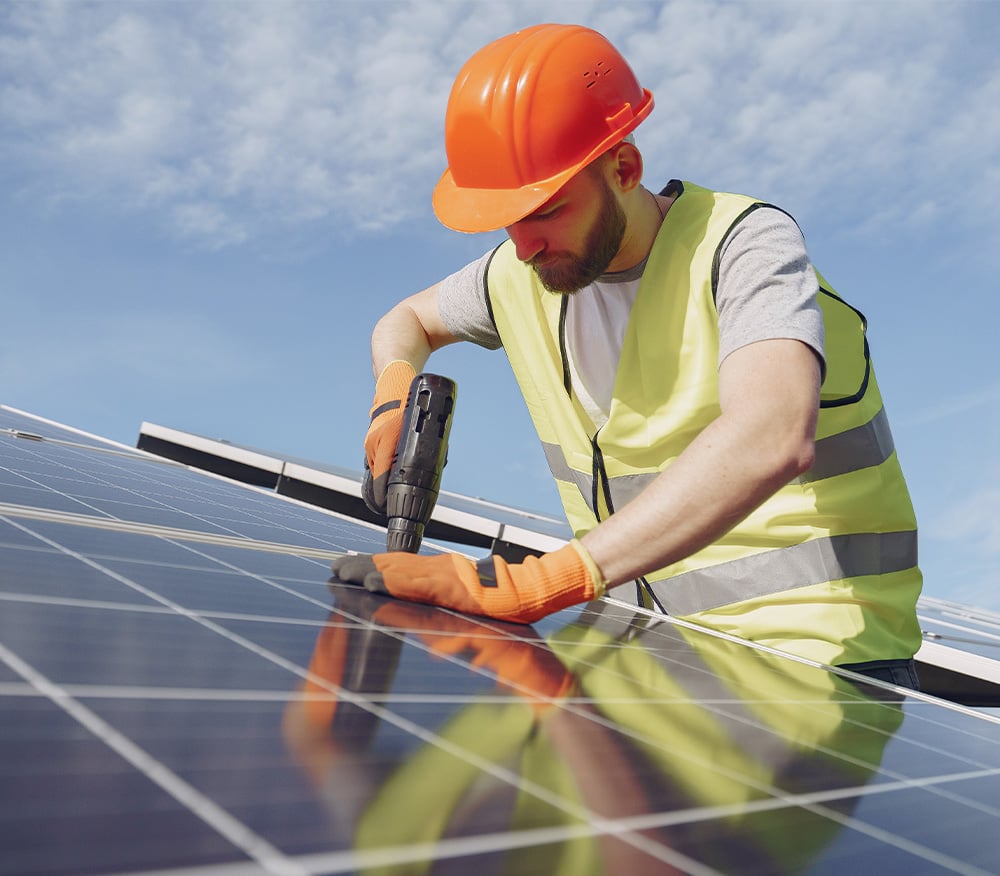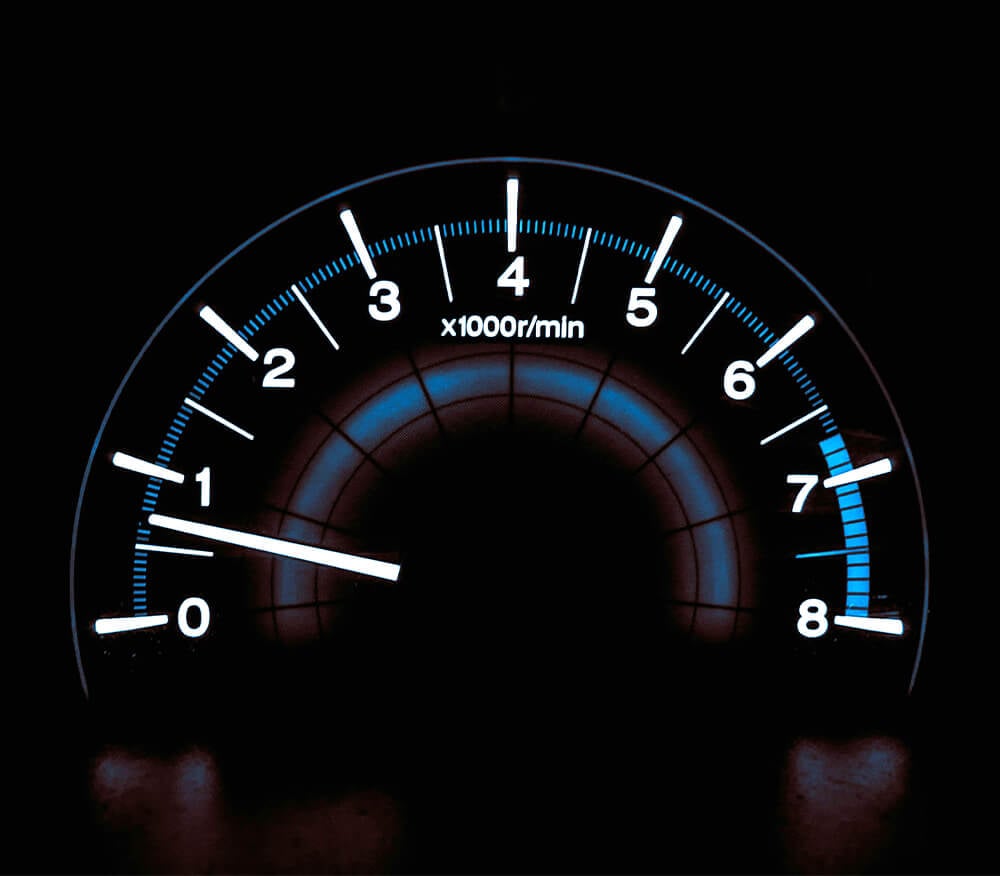Table of Contents
Although the government has adopted an optimistic stance on the future of load shedding in South Africa, there are plenty of good reasons why local SMEs should still consider investing in solar energy solutions. But investing in alternative energy is costly; so, what are the small business funding options for solar energy solutions?
Can businesses still get a tax break on solar panels?
In a 2023 article, we wrote about the budget speech and its impact on small business funding options, we mentioned that the government was incentivising the adoption of solar energy solutions by offering a tax rebate of up to R15,000 for individuals looking to install new solar panels. While that particular rebate has expired as of February this year, businesses still have access to a different tax incentive until February 2025 — but there might be a better way to fund alternative energy projects.
Why you should still consider small business funding options for solar energy solutions
If the government is so optimistic about the end of load shedding, why would anyone still consider installing solar energy? Fortunately, the benefits of solar power are consistent whether the country is experiencing load shedding or not.
Solar power helps businesses implement more environmentally and economically sustainable practices, reducing one’s carbon footprint while saving costs on electricity bills. Furthermore, access to solar energy generation opens up future opportunities for businesses to sell excess energy back to the grid.
And, although the government’s assertions that load shedding is on its way out are reassuring, it would be prudent to prepare for a future where regular power outages are still a part of our daily lives. Let’s not forget that, shortly after the president promised in the 2024 SONA that the end of load shedding was in sight and that Eskom would cap revolving blackouts at Stage 4, Stage 6 load shedding was implemented — flying directly in the face of presidential messaging and weakening public confidence in the future of energy security.
Thus far, the impact of load shedding on the local economy has been catastrophic. According to the South African Reserve Bank, the South African economy loses an estimated R900 million per day during Stage 6 load shedding.
Between July 2022 and July 2023, Shoprite, South Africa’s largest retailer, spent R1.3 billion on diesel for generators to relieve the burden of load shedding during this period. This means that the group spent R3.56 million on diesel per day in 2023 compared to just R620,000 in 2022 — a whopping increase of 470%.
Fellow retailer Pick n Pay warned that it expected to make a loss in the first half of the 2024 financial year, thanks in part to the R396 million required for diesel and the net incremental energy costs of R190 million. While the numbers reflect a profound impact on the performance of these large companies, the damage that load shedding has caused for small businesses is untold.
All in all, with the future of energy security still uncertain and the significant losses that small businesses stand to suffer if load shedding continues, investing in solar panels is still a worthwhile endeavour.
Small business funding options for solar energy solutions
The costs of installing solar panels are numerous. There’s the cost of the solar panels themselves, the cost of consultation and installation, and the cost of associated components such as batteries, inverters, mounting equipment, and cabling to consider.
Furthermore, the total cost of installing solar panels can vary according to a diverse range of factors, including the specifications of the building, the material of the roof, and the placement of the panels. While it’s impossible to determine a fixed cost of solar panels, the average home or office building is looking at total costs in excess of R100,000 — not exactly spare change for most growing businesses.
Fortunately, Bridgement has a range of flexible financing solutions to fund solar energy solutions for small businesses. As long as you are a South African-registered business with a minimum trading history of six months, you could access up to R5 million in business finance in 24 hours or less.
If you apply today, you could be looking at an energy-secure future for your small business by tomorrow. Apply online in 2 minutes — no cost, no commitment. Just business funding, simplified.
Although the government has adopted an optimistic stance on the future of load shedding in South Africa, there are plenty of good reasons why local SMEs should still consider investing in solar energy solutions. But investing in alternative energy is costly; so, what are the small business funding options for solar energy solutions?
Can businesses still get a tax break on solar panels?
In a 2023 article, we wrote about the budget speech and its impact on small business funding options, we mentioned that the government was incentivising the adoption of solar energy solutions by offering a tax rebate of up to R15,000 for individuals looking to install new solar panels. While that particular rebate has expired as of February this year, businesses still have access to a different tax incentive until February 2025 — but there might be a better way to fund alternative energy projects.
Why you should still consider small business funding options for solar energy solutions
If the government is so optimistic about the end of load shedding, why would anyone still consider installing solar energy? Fortunately, the benefits of solar power are consistent whether the country is experiencing load shedding or not.
Solar power helps businesses implement more environmentally and economically sustainable practices, reducing one’s carbon footprint while saving costs on electricity bills. Furthermore, access to solar energy generation opens up future opportunities for businesses to sell excess energy back to the grid.
And, although the government’s assertions that load shedding is on its way out are reassuring, it would be prudent to prepare for a future where regular power outages are still a part of our daily lives. Let’s not forget that, shortly after the president promised in the 2024 SONA that the end of load shedding was in sight and that Eskom would cap revolving blackouts at Stage 4, Stage 6 load shedding was implemented — flying directly in the face of presidential messaging and weakening public confidence in the future of energy security.
Thus far, the impact of load shedding on the local economy has been catastrophic. According to the South African Reserve Bank, the South African economy loses an estimated R900 million per day during Stage 6 load shedding.
Between July 2022 and July 2023, Shoprite, South Africa’s largest retailer, spent R1.3 billion on diesel for generators to relieve the burden of load shedding during this period. This means that the group spent R3.56 million on diesel per day in 2023 compared to just R620,000 in 2022 — a whopping increase of 470%.
Fellow retailer Pick n Pay warned that it expected to make a loss in the first half of the 2024 financial year, thanks in part to the R396 million required for diesel and the net incremental energy costs of R190 million. While the numbers reflect a profound impact on the performance of these large companies, the damage that load shedding has caused for small businesses is untold.
All in all, with the future of energy security still uncertain and the significant losses that small businesses stand to suffer if load shedding continues, investing in solar panels is still a worthwhile endeavour.
Small business funding options for solar energy solutions
The costs of installing solar panels are numerous. There’s the cost of the solar panels themselves, the cost of consultation and installation, and the cost of associated components such as batteries, inverters, mounting equipment, and cabling to consider.
Furthermore, the total cost of installing solar panels can vary according to a diverse range of factors, including the specifications of the building, the material of the roof, and the placement of the panels. While it’s impossible to determine a fixed cost of solar panels, the average home or office building is looking at total costs in excess of R100,000 — not exactly spare change for most growing businesses.
Fortunately, Bridgement has a range of flexible financing solutions to fund solar energy solutions for small businesses. As long as you are a South African-registered business with a minimum trading history of six months, you could access up to R5 million in business finance in 24 hours or less.
If you apply today, you could be looking at an energy-secure future for your small business by tomorrow. Apply online in 2 minutes — no cost, no commitment. Just business funding, simplified.







